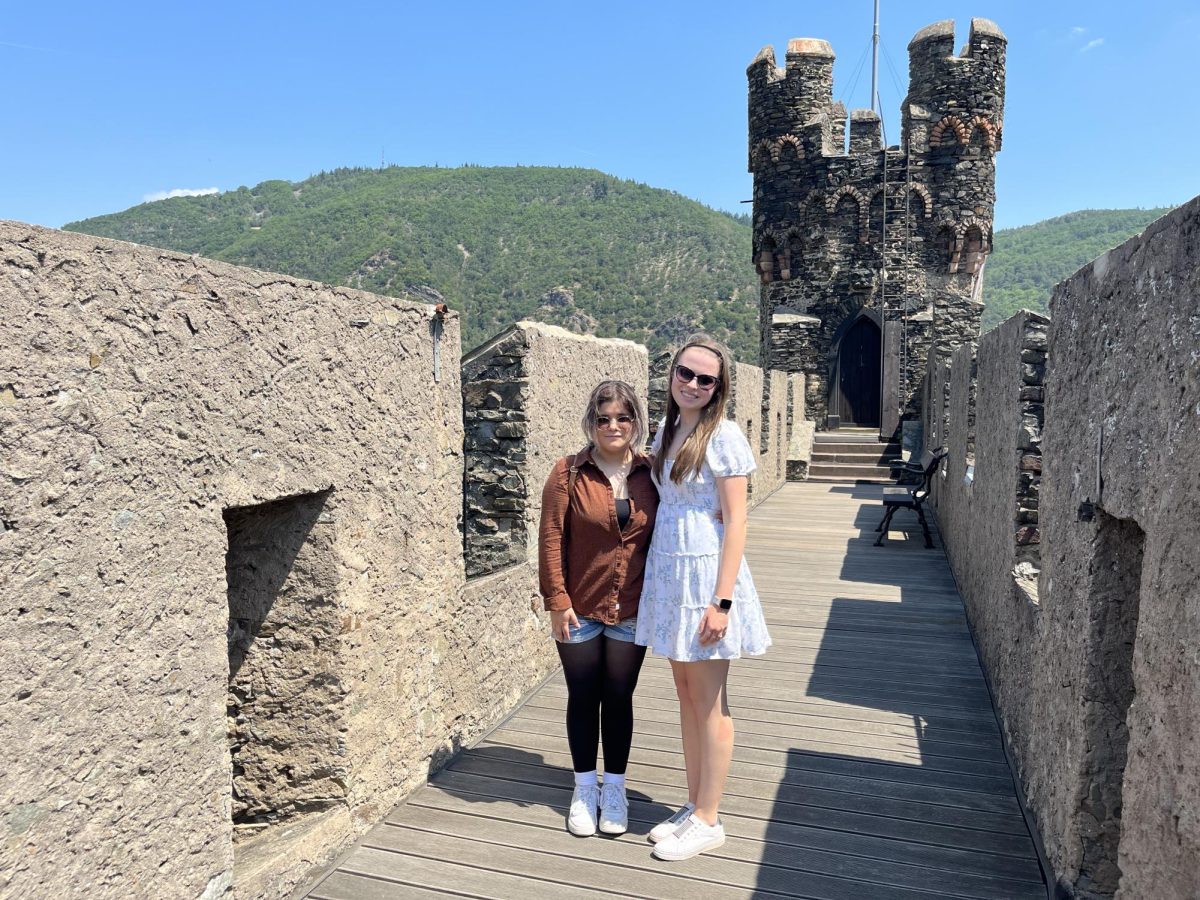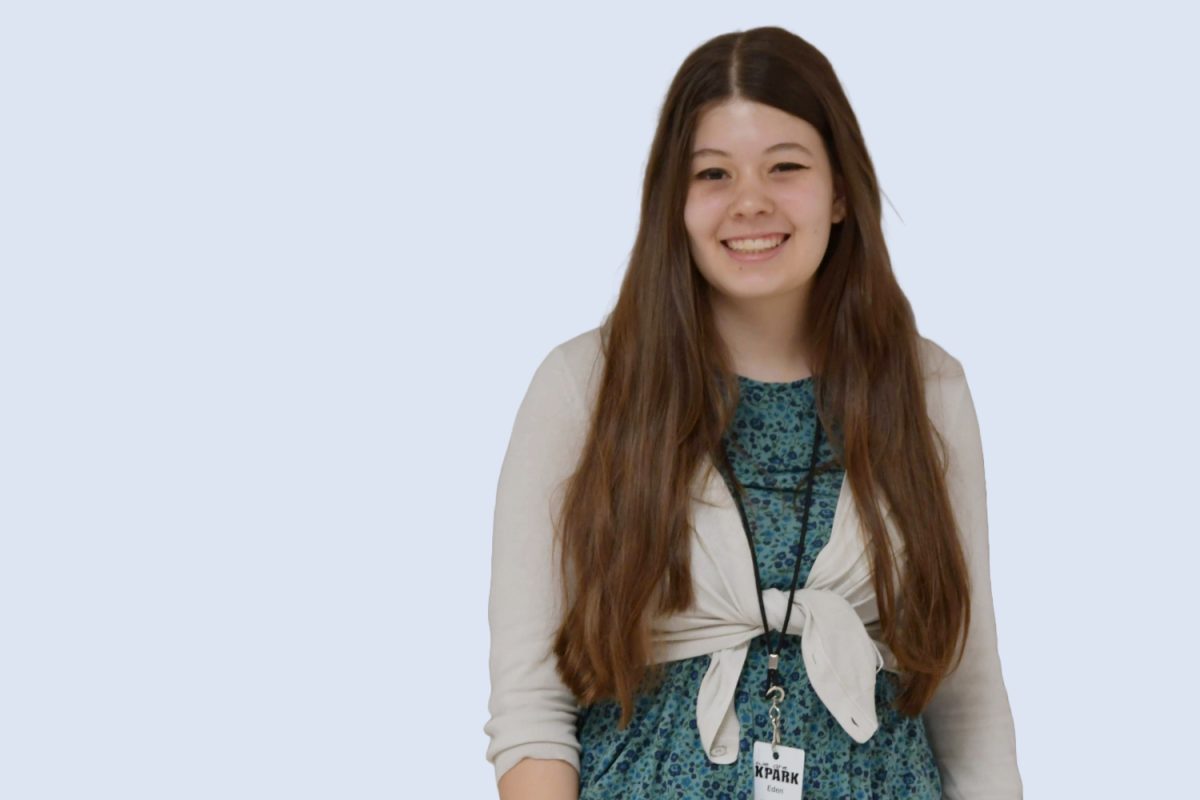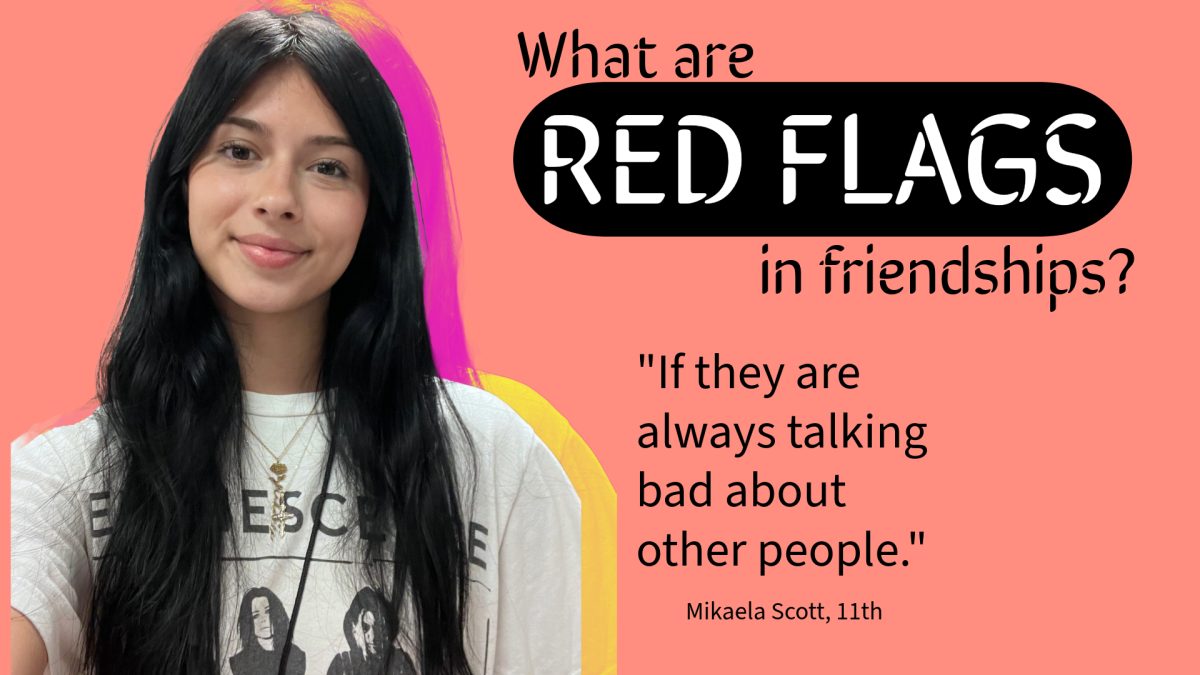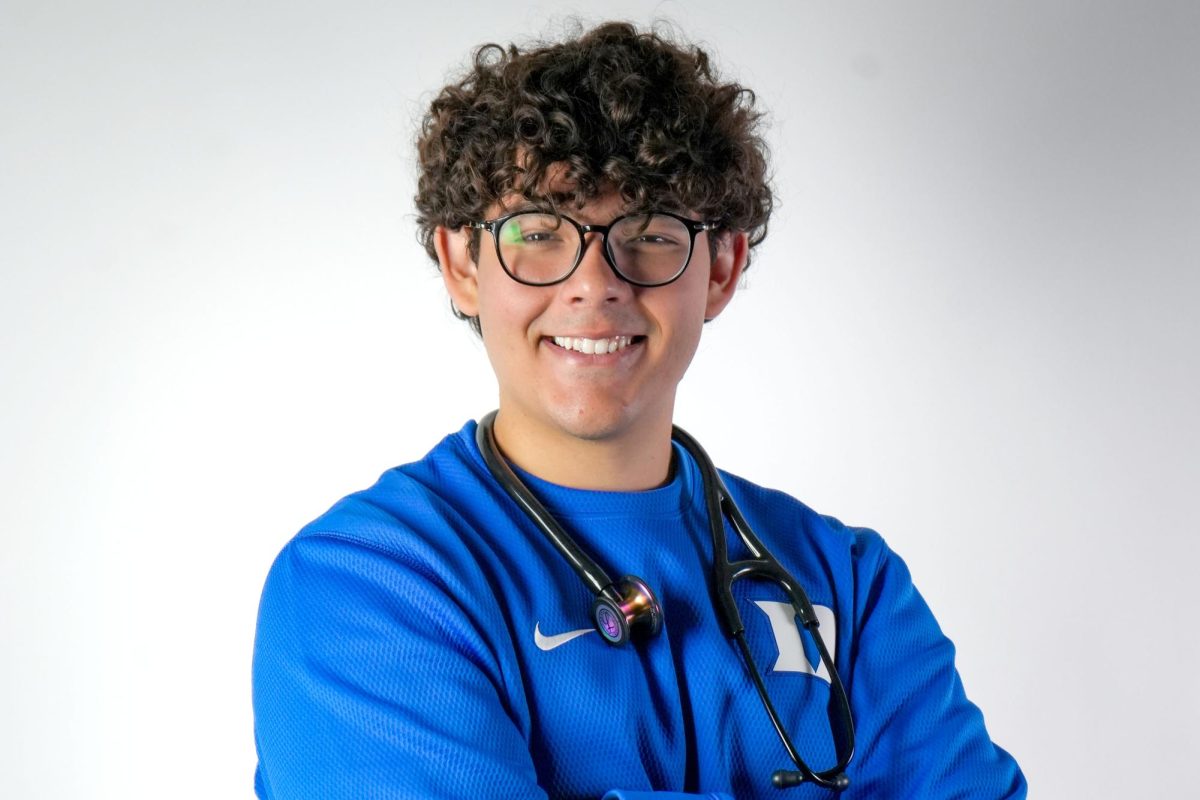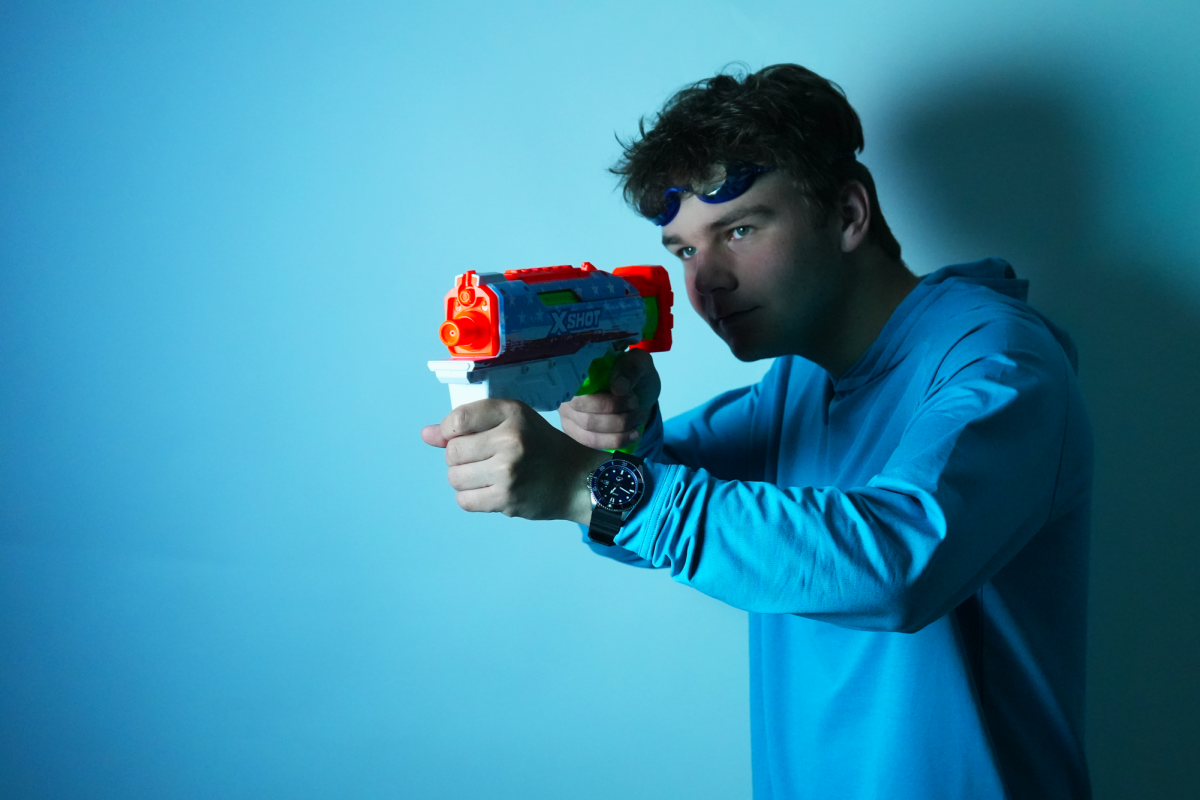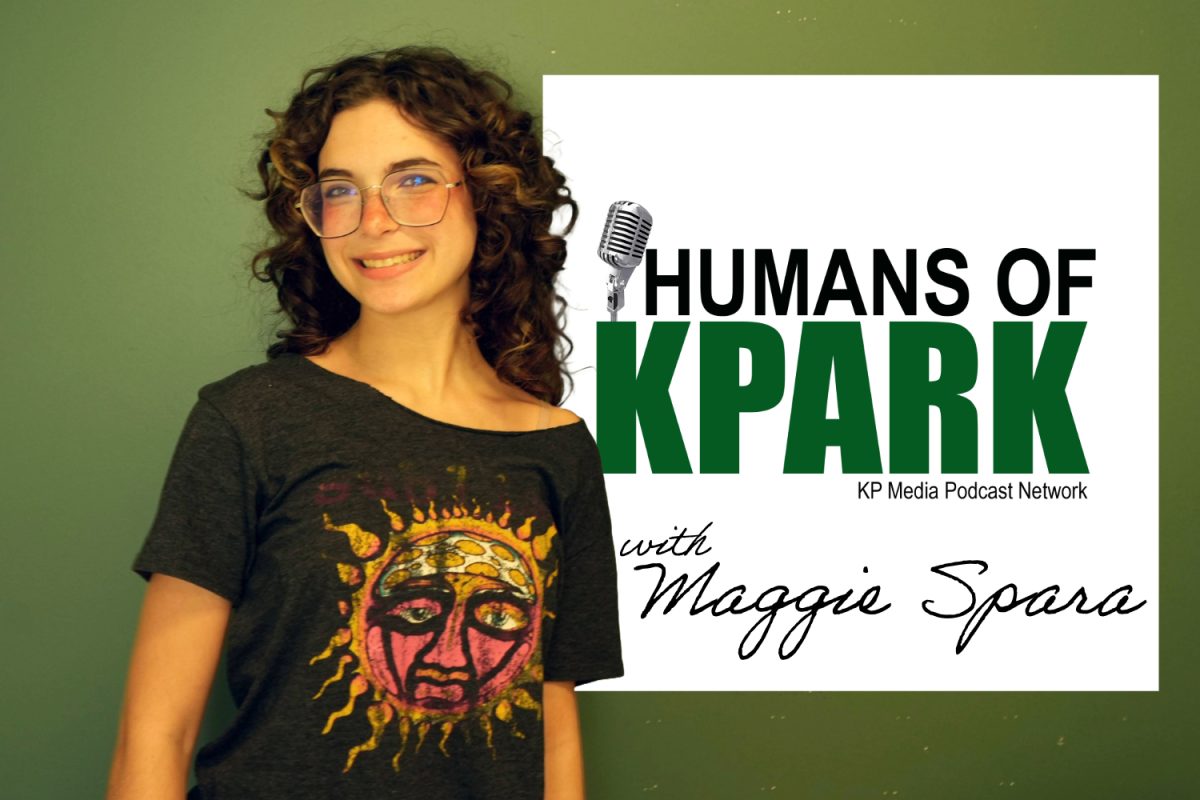Overwhelming amounts of green immediately consumed junior Azy Garcia’s senses when she stepped off the plane in Frankfurt, Germany. The air was clean, and as she drove through the countryside, castles popped up every five miles on her way to the small town of Bärstadt, where she would be staying for the next month.
“I found out about the program in eighth grade and then ninth grade,” Garcia said. “I tried to do it because studying abroad is like my biggest dream.”
Garcia participated in the short-term program, part of the Rotary Exchange Program, where she spent a month in Germany over the summer. The short-term program is non-academic, and the countries involved are mostly in the northern hemisphere to match up summers and time off. However, Germany was still in full swing for school, so Garcia got to experience going to school in a different country.
“You have a couple of classes that day and then right after you can just leave whenever,” Garcia said. “Then after school we would take the bus back home and then we would hang out for a day, and play.”
She hopes to spend next year participating in the long-term program. The long term program is a full year, and includes 200 possible countries students can stay at through the Rotary Exchange program.
“Their student comes here, we send them our student,” Club Youth Exchange officer of the Lake Houston area Rotary Exchange Program, and the district Secretary and communications chair, Susan Brodbeck said. “So most of the country chairs actually know each other. Rotary has various worldwide meetings either in Europe or North America. South America, you know, large conventions just devoted to youth exchange.”
The Rotary Exchange Program is completely volunteer based, and a non-profit organization. The program relies on Rotarians who are the adults who work to support the program and keep it working. There are approximately 1.2 million Rotarians all over the world.
“It’s very, very rewarding for me and for them,” Brodbeck said.
Everyone who works in the program has to go through criminal background checks, reference checks, and two tests to enter all to ensure the safety of the kids who participate in the program. The program is overseen by the United States Department of State.
“So the idea is to make sure it’s safe for the kids,” Brodbeck said. “And that we follow the rules and we have to document everything and do all the things that we do.”
Students have 2-3 host families while in the long term program. They stay with their first host family from August to late December, and then stay with their second host family until April or until the end of their trip, depending on if there is a third host family lined up. If there is a third host family, they stay with them for the last two months.
“We still keep in touch, which I think is really amazing,” Garcia said. “And host families, that’s like a special bond people have for life.”
The program allows everyone involved to meet people from different backgrounds and cultures, and form unique relationships with people students wouldn’t otherwise have met.
“You meet people from around the world,” Brodbeck said. “[On my birthday] my phone blew up with well-wishes from people all over the world that I’ve worked with over the 16 years.”
Students are encouraged to learn the language of whatever country they are going to once they get accepted, to help with the transition.
“When you’re surrounded by a language, you will learn to speak it,” French teacher and long time supporter of the Rotary Exchange Program Beverley Randall said. “It’s what happened to us when we were babies. Our parents were speaking it and we learned it. So when you first get to a country, especially if it’s a language you didn’t study in high school at all, [the Rotary Exchange Program] will give you some basics before you go. You’ll figure out some context and you’re going to feel frustrated because probably about the first couple of months, you’re going to feel like you don’t know what to say or how to say it, and you’re going to be pointing and nodding, but it’ll all of a sudden it’ll start to come.”
Once students are there, they are expected to immerse themselves into the culture of the country they are staying in.
“I think, broaden your horizons, get more broad minded and think outside the box and learn things and know that, okay, this, this is the way they do this in Belgium,” Brodbeck said. “And at first you might say, well, that’s not right, but if we teach the students to say, different is not necessarily right or wrong. It may be different, but that doesn’t make it wrong.”
All kids are provided with a Club Youth Exchange officer, and a rotary counselor who will check in with the student and host family once a month.
“Rotary stands out from the other programs because of the support it gives you once you get to the country you’re going to,” Randall said.
During the training leading up to the trip, students will get to meet with RoTexans — who are people who participated in the program in the previous years — to help know where they want to go, and what to expect once they are there.
“It’s a really life changing experience because you get to learn more not only about yourself, but a whole other culture and country,” Garcia said. “It also matures you and it can make you become more independent. Like if you were already independent enough, it really teaches you how to be more independent, especially since you’re away from your family.”
The program has a detailed application process. Students go to interest meetings throughout October and apply online, which includes an essay on why they should be chosen. Selected students will then be sponsored by their local Rotary club and meet for interviews. If they pass, they then go through an additional interview process at the district level.
“[We look for] adaptability, service, flexibility, maturity, responsibility, you know, all those things that they’re going to have to take with them on their exchange,” Brodbeck said.
The long term program does not count as a year of high school towards a high school diploma. Students who participate will either need to complete classes over the summer to get ahead before the trip, or they will be graduating a year later.
The cost for the long term trip is approximately $7,000. The program pays for room, board, and high school education abroad for the year.
“We always tell parents, oh, don’t don’t worry, you’ll save money because you don’t have to have a car payment for that child,” Brodbeck said. “You don’t have to buy the entertainment for that child or feed that child or buy the insurance for that child.”
The Rotary Exchange Program works to push students to learn in a unique way, and see the world from outside of the United States.
“The more we understand about the world, and how people live in other cultures, we can see that the differences don’t matter,” Randall said. “And we can sometimes embrace those differences and bring them into our own lives, or learn how to accept differences as just that. There are differences, but they don’t change whether or not we like or dislike a person.”


